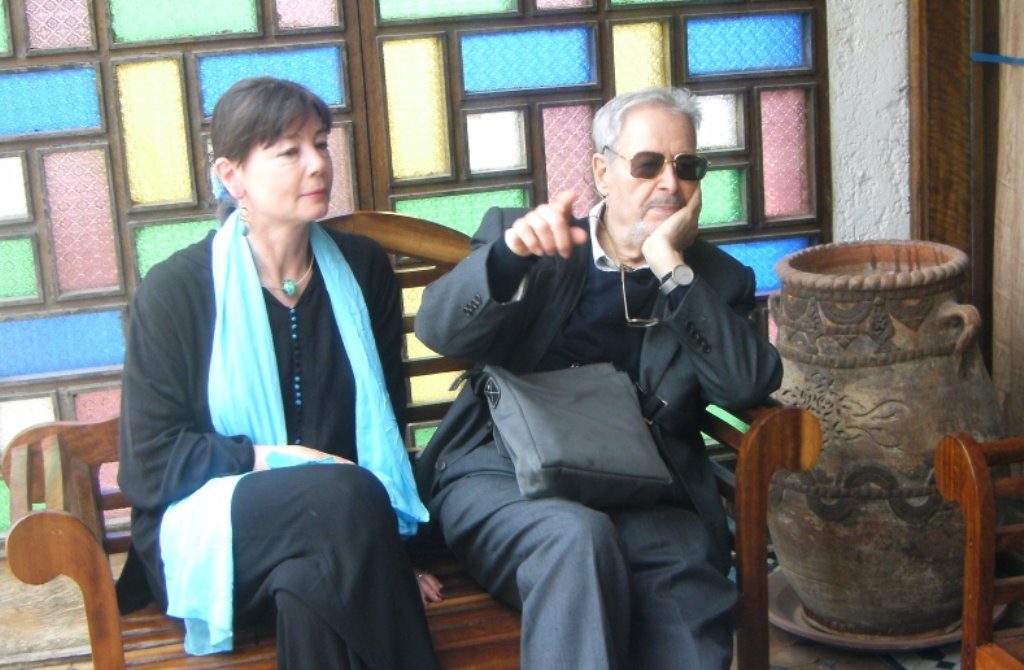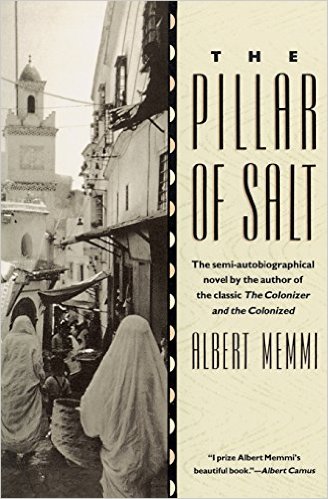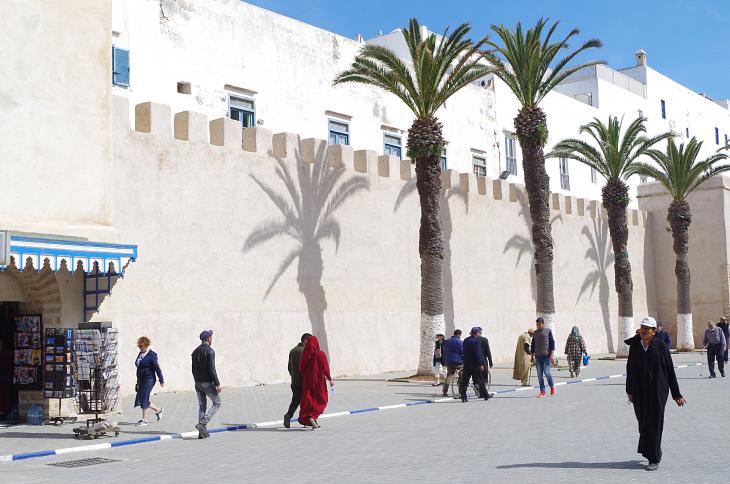Adieu, Albert!

It was Sartre and Camus who once introduced Albert Memmi to the Parisian literary milieu. Today, Memmi’s essays on colonialism, dominant behaviour and racism are sociological classics inspired by his own personal suffering. In 1942, as a young student of sociology, he was expelled from the University of Algiers by the Vichy regime and held captive until 1943, during the German occupation of Tunisia.
He is probably most famous for his "Portrait du colonise suivi du portrait du colonisateur", a searing criticism of the colonial system. Published in Paris in 1957 with a preface by Jean-Paul Sartre, "The Coloniser and the Colonised" put wind in the sails of resistance fighters in the Algerian War of Independence (1954-62). The book was secretly circulated throughout the nation, even in prisons, and together with Frantz Fanon’s 1961 essay "The Wretched of the Earth", is regarded as a key anti-colonial manifesto.
The inner strife of the post-colonial individual
Albert Memmi got the measure of the entire twentieth century with its identitarian strife, wars and colonial conflicts, repression and imbalances of power. For example, his first autobiographical novel "La Statue de Sel" (The Pillar of Salt) published in 1953 with a preface by Albert Camus, reflects on the conflict of identity experienced by Maghreb Jews in colonial constellations:
"I will always rediscover myself as Mordechai, Alexander, Benillusch. Native of a colonial country, a Jew in an anti-Semitic universe, an African in a world dominated by Europe. (...) How can a synthesis arise from so many contradictions?"
He pursued this very question throughout his life. As a Tunisian Jew, Albert Memmi, co-founder of the newspaper Afrique Action (later Jeune Afrique) together with Bechir Ben Yahmed in 1955, and one-time friend and ally of the later Tunisian President Habib Bourguiba – no longer found his place in post-colonial Tunisia. Together with his wife, the Alsace-born German scholar Germaine Dubach, he emigrated to Paris in 1956.
As the distinguished professor of sociology at the University of Nanterre, as co-founder of the International Association for Sociology in the French Language (1959) and winner of the "Grand Prix de la Francophonie" awarded by the Academie Francaise (2004), he represents an imposing body of work on the issue of the inner strife experienced by the post-colonial individual between Orient and Occident.

Born on 15 December 1920 in Tunis, the avowed atheist Albert Memmi died on 22 May 2020 in Paris – a Sabbath between the Ramadan Night of Destiny and Eid ul-Fitr, the "Sugar Feast".
In his writing garret
There was always a small dish of nibbles on hand whenever interviewers came to visit Memmi in his writer’s wigwam, a rambling garret up in the loft of an old Parisian rear-courtyard house in Rue Saint-Merri in the Marais quarter, stuffed with souvenirs from his childhood in Hara, the poor Jewish neighbourhood of Tunis.
Memmi observed the world with an alert gaze to the last, but his analyses were not always well-received.
When he issued a bleak prognosis on French television in 2011, during the first euphoric rush of the Jasmine Revolution, he came under bitter attack.
When, in "Portrait du Decolonisé" (2004), he read the riot act to the rulers of the post-colonial era and – half a century after independence – blamed them and not the former colonial rulers for corruption, poverty and totalitarianism, he seriously ruffled some feathers.
Condemned to an existence as "inert nomad" having suffered a femoral neck fracture in a fall, Memmi – in accordance with the title of his autobiography ("Le nomade immobile", 2003) – tended to receive visitors to his salon in a swivel chair propped up on several volumes of the French "Encyclopaedia Universalis".
Memmi’s definition of racism was included in this universal lexicon.
The coincidence could not have been more symbolic: a sage old man, who during his lifetime felt an affiliation with the stoics Marcus Aurelius, Epictetus and Seneca the Younger, now sat enthroned above everything, a serene smile on this face, taking stock of an entire century.
And indeed, Memmi leaves behind a momentous body of work. His manuscripts are stacked in long shelves on both sides of the corridor of his garret, for years pored over and critically redacted by students of French literature, led by Guy Dugas and Herve Sanson.
Their primary achievement is to have made Memmi’s extensive diaries – kept meticulously since the year 1939 - accessible to the public: not least detailing his war years in the labour camp and the political new beginnings in post-colonial Tunisia.
Philosophical appreciation of the little things
Alongside novels and classic sociology texts, his oeuvre also includes lighter fare, various poems ("Le Mirliton du ciel", 1990), an ode to women ("Teresa et autres femmes", 2004) and everyday philosophical observations on happiness ("Ah, quel bonheur!", 1995).

Memmi sought out this contentment on evening strolls through the picturesque Marais district, or when he sometimes invited his guests to join him in small Parisian restaurants for a tafina with lamb’s feet and other Tunisian specialities, or when he took such great pleasure in his collection of fragile Egyptian perfume flacons, the scent of which inspired him while he was writing until one day, a gust of wind blew through his garret leaving behind a pile of sparkling shards of glass.
I am fortunate to have known Albert Memmi. And fortunate to have convinced him to attend the first Heidelberg Maghreb festival as honoured guest in 2007, although in his advanced years he was extremely reluctant to travel. Or to have been able to accompany him to the Moroccan city of Essaouira in March 2010, where he was received as honorary president at the congress "Migrations, Identite et Modernite", the first conference to be held on the 1,000-year Jewish history of the Maghreb under the patronage of Andre Azoulay, influential adviser to King Mohammed VI.
Appropriately, the conference was held in a place that as a UNESCO world cultural heritage site can look back on centuries of harmonious coexistence between Jews and Arabs, Christians and Muslims, Berbers, Europeans and Africans: in the city of Essaouira, formerly Mogador, on Morocco’s Atlantic coast, a place that with its white-washed walls, blue doors and shutters, stirred in Memmi nostalgic reminiscences of his youth in Tunis.
Mechanisms of racist agitation
Memmi, a disciplined and prolific writer who liked to quote Paul Valery, who sat at his desk to write every day in the early hours, bequeaths the world a momentous body of work unrivalled in its conceptual keenness. Today, it may be more useful than ever in demonstrating the mechanisms of racist agitation and other interhuman entanglements in relation to dominance and dependence ("La Dependance", 1979; "Le Buveur et l'Amoureux. Le prix de la dependance", 1998).
Regardless of whether the subject was black people, Jews, the colonised, women or domestic staff, he always detected the same mechanisms at work, revealing that the devaluations of others stemmed from transparent interests based on actual or notional differences. In this respect, he understood racism as merely a particular case of "heterophobia", the fear of otherness.
The initial chapters of "L'homme domine. Le colonise, le Juif, le Noir, la Femme, le Domestique" (1968), written in the years 1963 and 1965, which analyse the different types of black American activists, using the examples of Martin Luther King, James Baldwin and Malcolm X, are of particular relevance at the moment, in view of the mass protests currently taking place in the United States.
A new perspective on old identities
To this day, Memmi’s writings on Jewish identity ("Portrait d'un Juif", I - II, 1962 and 1966) and the relationship between Jews and Arabs ("Juifs et Arabes", 1974) are considered required reading. The triads of new terms he conceived in the 1960s and with which he distinguishes between judeite, judaicite and judaisme, later analogously arabite, arabicite and arabisme as well as negrite, negricite and negrisme, were adopted worldwide.
This terminology frees the user from identitarian straitjackets and external ascriptions by differentiating between demographic-geographic (judaicite), institutional-doctrinaire (judaisme) and individually-practiced (judeite) components, thereby contextualising one-dimensional definitions.
French readers who have yet to discover the writings of Albert Memmi are strongly encouraged to read his "Testament insolent" of 2009, in which he set out the essence of his work in a manner that is both hard-hitting and highly accessible.
Farewell, ya aichek, dear Albert! May the heavens be wide enough for your free spirit!
Regina Keil-Sagawe
© Qantara.de 2020
Translated from the German by Nina Coon
Regina Keil-Sagawe is a literary translator and publicist with a focus on the Maghreb. Together with her students she translated Memmi's "Instructions for Happiness" (eva, Hamburg 1996) into German. She was friends with Albert Memmi for over thirty years.
